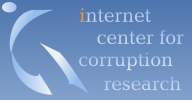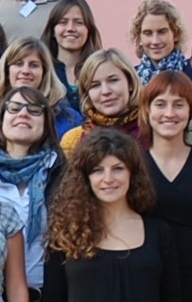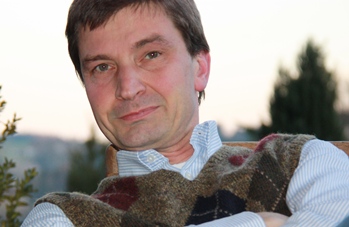
| Home → Lecture and Workshops → 2013 Passau |  |
|
|
The 2013 Economics of Corruption will focus on experimental and behavioral approaches to corruption and governance.
It is particularly directed towards PhD and Master-students who want to deepen their studies and share exchange on
recent research. Findings from the lab and the field are surveyed, linked to survey-data and confronted with theory.
Interactive tools such as games, poster presentations and case studies involve participants
and make them acquainted with today's challenges. Prof. Johann Graf Lambsdorff and his team have spearheaded models for reform related to such issues as
contract penalties, compliance systems, debarment, procurement, leniency and corporate liability. Participants are introduced into this body of research.
They work in groups to develop and implement their own experiments and discuss their findings.
PhD-students are invited to present their research (15 min. presentation + 5 min. discussion).
This international event is offered on a pro bono basis. There is no tuition fee. It is directed towards graduate and post-graduate students and faculty in the social sciences. |

Time: October 6-13, 2013
Program: A draft version of the program is available here.
Three guest presentations on behavioral and experimental corruption and governance complement the program.
Prof. Dr. Christoph Engel from the Max-Planck-Insitute for Research on Collective Goods, Bonn, will present latest research on "Symmetric vs. Asymmetric Punishment Regimes for Bribery".
Prof. Dr. Martin Kocher from the Ludwig-Maximilians Universität, Munich, will focus on experimental approaches to "Norm Enforcement"
Prof. Dr. Günther Schulze from the University of Freiburg will focus on field data with his presentation: "Corruption in Russia: A Field Study on Law Enforcement"
Apart from these guest presentations the event consists of lectures, case studies, group discussion, games and poster presentations. The course is restricted to successful applicants (information see below).
For registration please send an email to Ms. Ann-Kathrin Crede.
Venue: University of Passau, Germany
Requirements: PhD-students and advanced scholars are invited to present their research. While studies from the field and the laboratory are most welcome, we also accept research on survey work and applied theory.
Prospective participants must apply by completing the application form. Please send your application to Ann-Kathrin Crede.
Applications will be screened on the academic background, motivation and, if submitted, the quality of the research. No limits are put on methodology or academic disciplines.
While participation is free of charge, we do not provide funding for travel or lodging. Course material will be made available online. Ca. 20 EUR will be collected to cover expenses for two evening events.
Exam: A final exam is offered on October 18, 2013, from 10-12 a.m. Two tutorials will be offered in advance to the exam. Students receive 5 ECTS credit points, based on a memo that describes the group's research findings (30%) and the exam (70%).
Accommodation: The City of Passau provides all ranges of accommodation. A list of selected hotels including prices and contact information is available here (Excel-File). You may also go the webpages of the Passau Tourist Information. Participants are asked to arrange accommodation on their own.
|
- Lambsdorff, J. Graf (2007) "The New Institutional Economics of Corruption and Reform: Theory, Evidence and Policy". Cambridge University Press
- Lambsdorff, J. Graf (2009), The Organization of Anticorruption - Getting Incentives Right. In: Corruption, Global Security, and World Order, ed. by R. Rotberg, (The Brookings Institution Press: Washington, D.C., 2009): 389-415.
- Serra, D. and L. Wantchekon (2012) New Advances in Experimental Research on Corruption, Research in Experimental Economics volume 15, Emerald Group Publishing.


